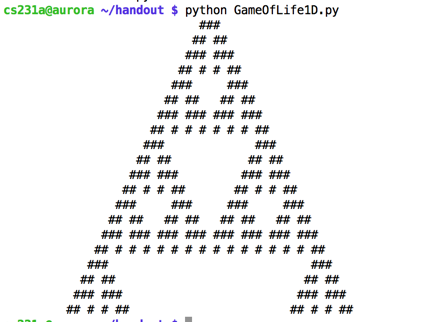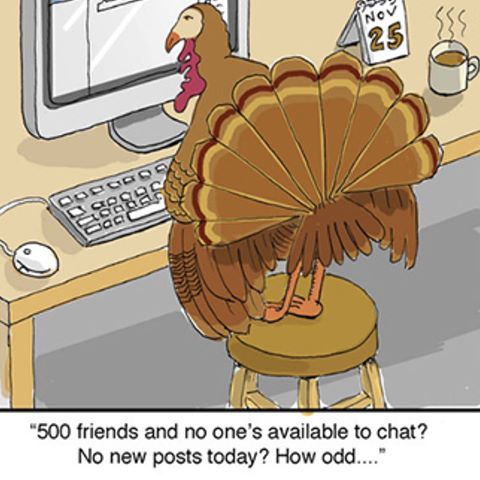Difference between revisions of "CSC231 Schedule Fall 2017"
(→ ) |
(→ ) |
||
| (69 intermediate revisions by the same user not shown) | |||
| Line 401: | Line 401: | ||
::* [[Media:CSC231_slides_week10_F17.pdf | Slides]] | ::* [[Media:CSC231_slides_week10_F17.pdf | Slides]] | ||
* '''Friday''' | * '''Friday''' | ||
| − | ::* [[Media:CSC231_C_Tutorial_2017.pdf | C | + | ::* [[Media:CSC231_C_Tutorial_2017.pdf | C Tutorial #1]] |
| | | | ||
| − | * [[CSC231 Homework 6 Fall 2017| Homework #6]], due Monday Nov 13 at 11:55 p.m. | + | * [[CSC231 Homework 6 Fall 2017| Homework #6]], due Monday Nov 13 at 11:55 p.m. <br />[[CSC231_Homework_6_Fall_2017#Solution_Assembly_Program| Solution assembly program]]. |
| | | | ||
* [http://cs.smith.edu/~dthiebaut/ArtOfAssembly/CH06/CH06-5.html#HEADING5-3 Unconditional Jump] | * [http://cs.smith.edu/~dthiebaut/ArtOfAssembly/CH06/CH06-5.html#HEADING5-3 Unconditional Jump] | ||
| Line 438: | Line 438: | ||
::* The Stack segment | ::* The Stack segment | ||
::* Push & Pop instructions | ::* Push & Pop instructions | ||
| + | * '''Wednesday''' | ||
::* Functions | ::* Functions | ||
| − | + | ::* [[CSC231 Code Snippets | Examples]] of assembly code. | |
| − | * | + | ::* [[Media:CSC231_slides_week11_F17.pdf | Slides]] |
* '''Friday''' | * '''Friday''' | ||
| + | ::* [[Media:CSC231_C_Tutorial_2017.pdf | C Tutorial #2]] | ||
| | | | ||
| − | + | * [[CSC231_Homework_7_Fall_2017 | Homework #7]], due <strike>11/20/17</strike> 11/27/17 at 11:55 p.m. | |
| + | <br /> | ||
| + | [[CSC231_Homework_7_Fall_2017#Solutions | Solution programs]] | ||
| | | | ||
| − | * | + | * [http://cs.smith.edu/~dthiebaut/ArtOfAssembly/CH11/CH11-1.html#HEADING1-0 Functions]. Functions are also called ''procedures'' when dealing with assembly. You'll find this term used in Randy Hyde's documentation. Also, Hydes uses the '''proc''' and '''endp''' directives to define functions, which is fine. We won't in this class. Functions work just as well without! |
| + | |||
|} | |} | ||
<br /> | <br /> | ||
| Line 471: | Line 476: | ||
| | | | ||
* '''Monday''' | * '''Monday''' | ||
| − | * ''' | + | ::* We continue with functions and passing parameters via the '''stack''' |
| − | * '''Friday''' | + | ::* [[Media:CSC231_slides_week12_F17.pdf | Slides]] |
| + | |||
| + | <br /> | ||
| + | [[Image:TurkeyThanksgiving.jpg|right|150px]] | ||
| + | * '''Wednesday/Friday''' <font color="magenta">THANKSGIVING BREAK</font> | ||
| | | | ||
| − | + | <font color="magenta">'''No homework assignment this week...''' </font> | |
| | | | ||
| − | * | + | * |
|} | |} | ||
<br /> | <br /> | ||
| Line 496: | Line 505: | ||
{| class="mw-collapsible " style="width:100%" border="1" | {| class="mw-collapsible " style="width:100%" border="1" | ||
|- style="background:#dddddd;" | |- style="background:#dddddd;" | ||
| − | |width="60%"| '''Topics''': | + | |width="60%"| '''Topics''': Recursion |
|width="15%"| '''Lab/Hw''' | |width="15%"| '''Lab/Hw''' | ||
|width="25%"| '''Reading''' | |width="25%"| '''Reading''' | ||
| Line 502: | Line 511: | ||
| | | | ||
* '''Monday''' | * '''Monday''' | ||
| − | + | [[Image:VideoLogo.png|50px| right | link=https://www.youtube.com/watch?v=Wfrj30cJJ-0]] | |
| − | * '''Wednesday | + | ::* Studying a recursive Factorial function: Python, Java, Assembly, stack frame, stack overflow. |
| + | * '''Wednesday | ||
| + | ::* Exploring various issues related to recursion | ||
| + | ::* [[Media:CSC231_slides_week13_F17.pdf | Slides]] | ||
| + | * '''Friday''' | ||
| + | ::* [[Media:CSC231_C_Tutorial_2017.pdf | C Tutorial #3]] | ||
| | | | ||
| − | + | * [[CSC231 Homework 8 Fall 2017| Homework #8]], due 12/4/17 @ 11:55 p.m. | |
| + | <br />[[CSC231_Homework_8_Fall_2017#Solution_Program| Solution programs and answers for Homework #8]] | ||
| | | | ||
| − | * | + | * [http://cs.smith.edu/~dthiebaut/ArtOfAssembly/CH11/CH11-7.html#HEADING7-86 Recursion chapter] in Randy Hall's Art of Assembly. Hall uses 16-bit registers (ax, bx, bp, etc...) but the reasoning is the same as for 32-bit registers. |
| + | |||
|} | |} | ||
<br /> | <br /> | ||
| Line 514: | Line 530: | ||
WEEK 14 | WEEK 14 | ||
================================================== --> | ================================================== --> | ||
| − | + | <br /> | |
==== ==== | ==== ==== | ||
---- | ---- | ||
{| style="width:100%" border="0" | {| style="width:100%" border="0" | ||
| − | |width="45%"|'''Week 14''' | + | |width="45%"|'''Week 14''' Dec. 4 |
|width="20%"| ''' ''' | |width="20%"| ''' ''' | ||
|width="25%"| ''' ''' | |width="25%"| ''' ''' | ||
| Line 527: | Line 543: | ||
{| class="mw-collapsible " style="width:100%" border="1" | {| class="mw-collapsible " style="width:100%" border="1" | ||
|- style="background:#dddddd;" | |- style="background:#dddddd;" | ||
| − | |width="60%"| '''Topics''': | + | |width="60%"| '''Topics''': Fixed and Floating-Point Numbers |
|width="15%"| '''Lab/Hw''' | |width="15%"| '''Lab/Hw''' | ||
|width="25%"| '''Reading''' | |width="25%"| '''Reading''' | ||
| Line 533: | Line 549: | ||
| | | | ||
* '''Monday''' | * '''Monday''' | ||
| + | ::* Fixed-Point Numbers, ''U''(a,b), and ''A''(a, b) | ||
* '''Wednesday''' | * '''Wednesday''' | ||
| + | ::* The Floating-point format | ||
| + | ::* [[Media:CSC231_slides_week14_F17.pdf | Slides]] | ||
* '''Friday''' | * '''Friday''' | ||
| + | ::* [[Media:CSC231_C_Tutorial_2017.pdf | C Tutorial #4]] | ||
| | | | ||
| − | + | * [[CSC231_Homework_9_Fall_2017 |Homework 9]] is a make-up homework that can be used to replace the grade of Homework 1 to Homework 8. | |
| + | <br /> | ||
| + | * [[CSC231_Homework_9_Fall_2017#Solution_Programs | Solution programs]] for Homework 9. | ||
| | | | ||
| − | * | + | * [http://www.science.smith.edu/dftwiki/index.php/CSC231_An_Introduction_to_Fixed-_and_Floating-Point_Numbers Fixed and Floating-point number formats] |
|} | |} | ||
<br /> | <br /> | ||
| Line 550: | Line 572: | ||
---- | ---- | ||
{| style="width:100%" border="0" | {| style="width:100%" border="0" | ||
| − | |width="45%"|'''Week 15''' Dec. | + | |width="45%"|'''Week 15''' Dec. 11 |
|width="20%"| ''' ''' | |width="20%"| ''' ''' | ||
|width="25%"| ''' ''' | |width="25%"| ''' ''' | ||
| Line 563: | Line 585: | ||
|-valign="top" | |-valign="top" | ||
| | | | ||
| − | * '''Monday | + | * '''Monday, Wednesday''' |
| − | + | ::* Floating Point operations | |
| − | * | + | ::* [[Media:CSC231_slides_week15_F17.pdf | Slides]] |
| − | |||
| − | |||
| − | |||
| − | |||
| − | * | ||
| − | | | ||
| − | |||
| − | |||
| − | |||
| − | |||
<br /> | <br /> | ||
| − | |||
| − | |||
| − | |||
| − | |||
| − | |||
| − | |||
| − | |||
| − | |||
| − | |||
| − | |||
| − | |||
| − | |||
| − | |||
| − | |||
| − | |||
| − | |||
| − | |||
| − | |||
| − | |||
| − | |||
| − | |||
| | | | ||
| − | + | * [[CSC231 Final Exam Fall 2017 | Final take-home exam]] is given out on <font color="magenta">Wednesday</font>. Due a week later. | |
| | | | ||
| − | * | + | * [[CSC231_An_Introduction_to_Fixed-_and_Floating-Point_Numbers | Fixed and Floating-point number formats]] |
|} | |} | ||
<br /> | <br /> | ||
Latest revision as of 18:35, 6 January 2018
--D. Thiebaut (talk) 11:33, 11 July 2017 (EDT)
| Week 1 Sept. 8 |
| Topics: Introduction | Lab/Hw | Reading |
|
|
|
| Week 2 Sept. 11 |
| Topics: | Lab/Hw | Reading |
|
|
| Week 3 Sept. 18 |
| Topics: | Lab/Hw | Reading |
|
|
|
| Week 4 Sept. 25 |
| Topics: | Lab/Hw | Reading |
|
|
|
| Week 5 Oct. 2 |
| Topics: | Lab/Hw | Reading |
|
|
|
| Week 6 Oct. 9 |
| Topics: | Lab/Hw | Reading |
|
|
|
| Week 7 Oct. 16 |
| Topics: | Lab/Hw | Reading |
|
|
|
| Week 8 Oct. 23 |
| Topics: | Lab/Hw | Reading |
|
|
| Week 9 Oct. 30 |
| Topics: | Lab/Hw | Reading |
|
|
| Week 10 Nov. 6 |
| Topics: | Lab/Hw | Reading |
|
|
| Week 11 Nov. 13 |
| Topics: Functions | Lab/Hw | Reading |
|
|
|
| Week 12 Nov. 20 |
| Topics: | Lab/Hw | Reading |
|
No homework assignment this week... |
|
| Week 13 Nov. 27 |
| Topics: Recursion | Lab/Hw | Reading |
|
|
|
| Week 14 Dec. 4 |
| Topics: Fixed and Floating-Point Numbers | Lab/Hw | Reading |
|
|
| Week 15 Dec. 11 |
| Topics: | Lab/Hw | Reading |
|
|


